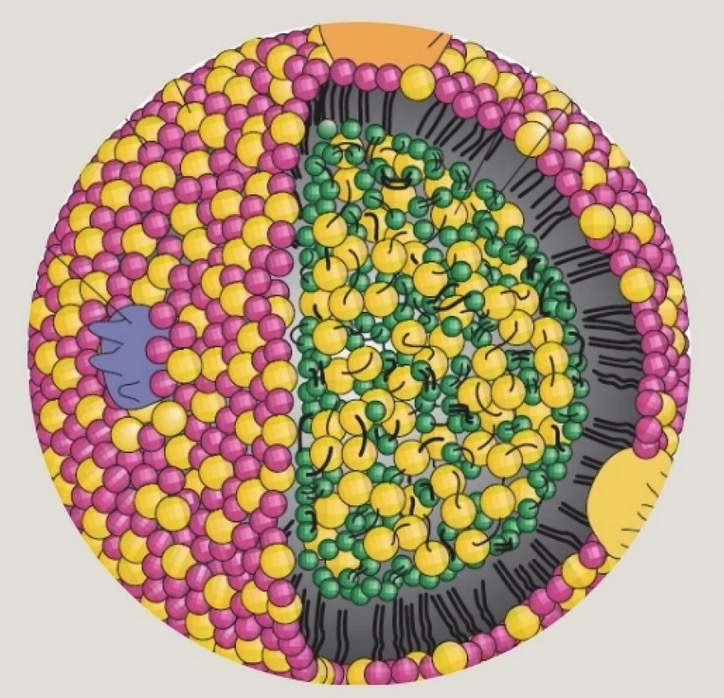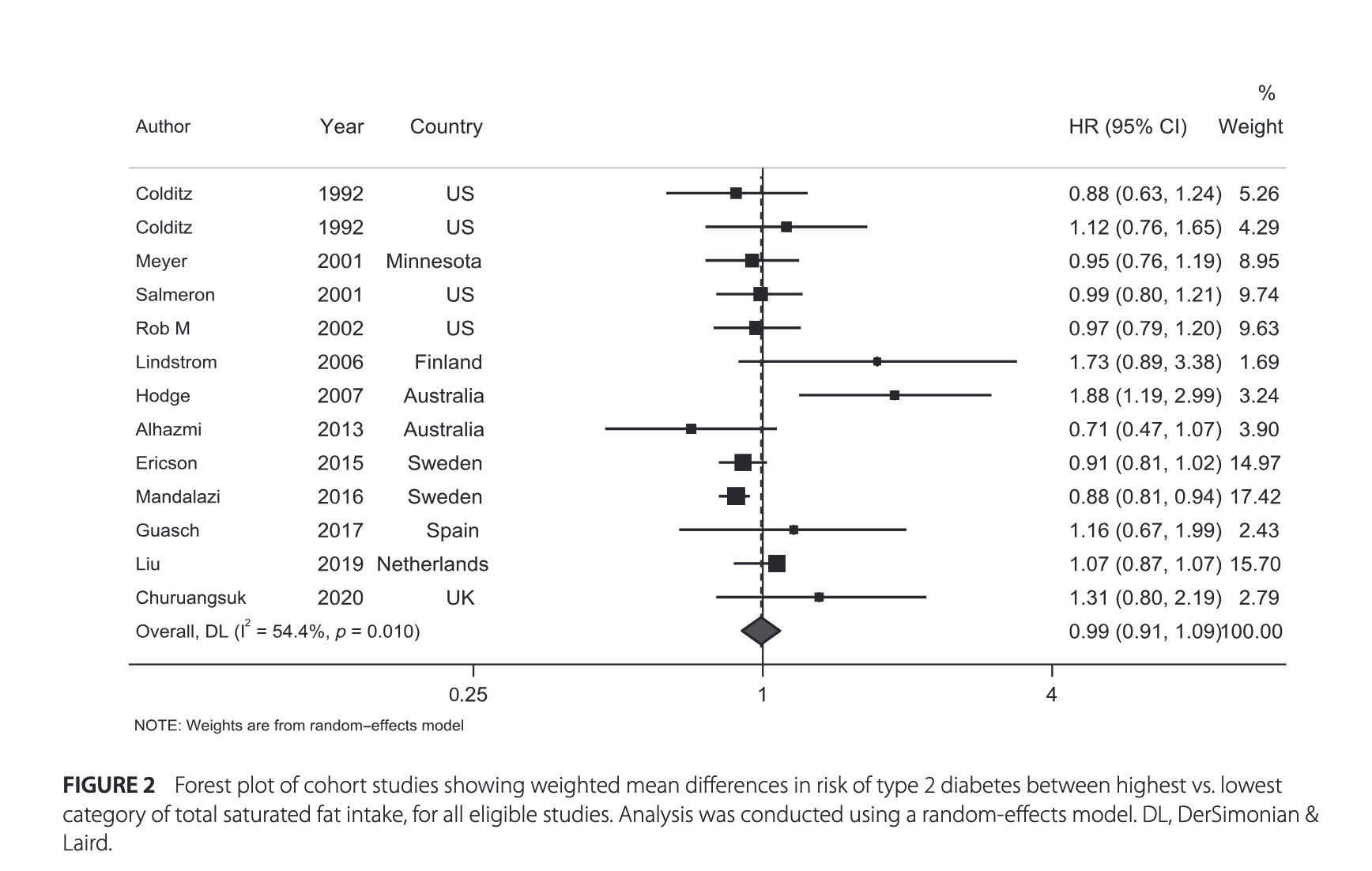- 574 Posts
- 11K Comments
 1·10 hours ago
1·10 hours agoI just wrote a script and iterated over the instance list from lemmy-explorer.
 4·14 hours ago
4·14 hours agoThat’s a good idea! I tried that, but if your banned from a instance the mod log of that ban doesn’t federate back to my instance.
Example: https://lemm.ee/modlog?page=1&actionType=All&userId=1208549 vs https://sh.itjust.works/modlog?page=1&actionType=All&userId=1211562
The sh.itjust.works ban isn’t federated.
oh yeah! you have to be careful coming off a prolonged fast. glad you recovered!

 1·17 hours ago
1·17 hours agoLooks like you have a 5 day water fast coming up!

 7·18 hours ago
7·18 hours agoBreakfast for dinner

 1·18 hours ago
1·18 hours ago

The three most interesting figure from the paper.
They do break down the changes of various biomarkers of this group in table 2, its interesting
Noteworthy, the individuals who initially had pre-diabetic HbA1c values and high triglyceride levels were able to lower these atherosclerotic risk markers; however, because some individuals with initially low HbA1c or triglyceride values experienced an increase in HbA1c or triglycerides, respectively, the overall difference between pre-diet and on-diet values was not statistically significant

 1·19 hours ago
1·19 hours agoI’m sure someone is working on a epidemiological association right now!

 3·21 hours ago
3·21 hours agoyes, I think so. Not locally, the whole body has to reduce the glucose and glutamine availability because everything is interconnected through the blood
https://hackertalks.com/post/8609461
Here is the proposed press-pulse protocol : https://pubmed.ncbi.nlm.nih.gov/28250801/ - Press-pulse: a novel therapeutic strategy for the metabolic management of cancer
Here is a application of that protocol for glioblastomas : https://pubmed.ncbi.nlm.nih.gov/39639257/ - Clinical research framework proposal for ketogenic metabolic therapy in glioblastoma
The press-pulse model shows lots of promise, and there are multiple ongoing studies with glioblastomas using this protocol.
Basically - deep ketosis, then periods of medicine to reduce glucose and glutamate

 3·22 hours ago
3·22 hours agothe TLDR here is they have quantified the energy consumption and fermentation of cancer cells and show that only glucose and glutamine can produce ATP in cancer cells. This has large implicates for cancer treatments.

 1·22 hours ago
1·22 hours agoDr. Seyfried also has a conversational video talking about the paper https://www.youtube.com/watch?v=Pl5Nt3WrV5E
summerizer
In this video, Professor Seyfried discusses his recent paper that challenges long-standing assumptions in cancer treatment, specifically focusing on the Warburg hypothesis. He argues that many contemporary theories about cancer are based on misinterpretations of data from influential scientists like Otto Warburg and Sydney Weinhouse. Seyfried emphasizes that cancer is primarily a metabolic disease, driven by energy dysregulation instead of traditional genetic mutations. He introduces new insights into the role of mitochondrial function and the necessity of fermentable fuels like glucose and glutamine in cancer cell metabolism.
Key Points
Cancer Misunderstandings
Professor Seyfried outlines how modern cancer treatment theories derive from incorrect interpretations of ancient data, particularly misrepresenting the energy metabolism of cancer cells. He argues that this has led the cancer research field astray for decades.
Warburg Hypothesis Re-evaluated
Seyfried discusses the Warburg hypothesis, which posited cancer as a disorder of energy metabolism due to insufficient oxidative phosphorylation. He explains how earlier interpretations of data failed to acknowledge other forms of ATP production in cancer cells.
Oxygen Consumption vs ATP Production
The video highlights Seyfried’s findings that oxygen consumption does not accurately correlate with ATP production in cancer cells, as opposed to normal cells where oxygen consumption is an effective marker. This distinction is crucial for understanding cancer metabolism.
Mitigating Cancer Growth with Fuel Restrictions
Seyfried suggests a paradigm shift in cancer treatment—removing glucose and glutamine as energy sources—since these fuels drive cancer cell growth. He proposes ketogenic metabolic therapy as a more viable approach for managing cancer.
Mitochondrial Function in Cancer
The discussion emphasizes that cancer cells exhibit mitochondrial dysfunction, leading to altered energy production mechanisms and excessive lactic acid and lipid droplet accumulation. These abnormalities are signals of compromised oxidative phosphorylation capabilities.
Demand for New Cancer Treatment Models
Finally, Seyfried calls for a review of cancer treatment strategies based on understanding its metabolic origins rather than purely genetic approaches, asserting the need to develop management techniques that address the metabolic dysfunctions of tumors.
That looks really good

 2·1 day ago
2·1 day agoThis!
Many people’s hormones are out of balance due to a diet with lots of sugar and fructose. It never hurts to cut down and see if things improve

 5·1 day ago
5·1 day agoThat photo gives me anxiety
Go live with her for a year, then decide

 2·1 day ago
2·1 day agoThat is awesome, are most places easy going if you just order a naked patty?

 1·1 day ago
1·1 day agoSubstituting dietary saturated for monounsaturated fat impairs insulin sensitivity
Thank you for the reference, it was a interesting read. This study has the Saturated fat group at 50% saturated fat, and 50% unsaturated fats, its not a very clean signal. I’m not sure why the SAFA group had a reduced response to a GTT, it warrants further study.
Since the study you reference is from 2001, there are more recent studies that reference it.
https://www.sciencedirect.com/science/article/pii/S2161831323000674
Saturated Fatty Acid Intake and Risk of Type 2 Diabetes: An Updated Systematic Review and Dose–Response Meta-Analysis of Cohort Studies
There was evidence of publication bias among studies on dietary total SFAs and T2DM. Our results indicated no significant association between dietary total SFA and risk of T2DM.
Some of the experimental studies support the notion that dietary fats, and SFAs in particular, are associated with the development of insulin resistance and type 2 diabetes mellitus (T2DM) (2–5). On the other hand, the majority of more recent cohort studies have indicated no association between dietary SFAs and the incidence of T2DM

The linear dose–response meta-analysis of the main 13 studies showed no linear association between increasing intake of SFAs and T2DM risk (HR: 0.93; 95% CI: 0.84, 1.03). From 13 cohort studies regarding the association between total SFAs and T2DM risk, 7 studies (5–7, 9, 31, 33, 34) reported sufficient data for the nonlinear doseresponse analyses. There was no evidence of a U- or J-shaped association between total SFA intake and risk of T2DM (Pnonlinearity = 0.153; n = 7; Figure 3). Supplemental Figure 5 presents the results for publication bias. Overall, there was evidence of publication bias with the Egger test (P = 0.032).


 3·1 day ago
3·1 day agoIt would be nice if they had used a funnel, maybe the cost of the aluminum powder is so low they don’t care if a bit falls into the dustbox?

 12·1 day ago
12·1 day agoHer story in the nutritional class touches me deeply, the advice they were given is opposite of what she should be doing.
Through the process of elimination she discovered keto wasn’t enough, and she had some level of oxalate sensitivity
Since she spent most of her life at low or no fat, it took her a month to get her gall bladder back into shape.

 8·1 day ago
8·1 day ago#3 some sites don’t allow the + so you’re screwed
Having your own domain name is great here! Plus a catch all address
Q@starfleet.ufp
But maybe you get spam at starfleet.ufp, so subdomains to the rescue, they NEVER get random spam, so you can have
b.sisko@ds9.station.starfleet.ufp or any other address you want at @ds9.station.starfleet.ufp and have it go to your catchall address.
Some email services, like fastmail, will let you automatically respond to emails to your catchall from the address they sent mail to. So you will always respond as b.sisko@ds9.station.starfleet.ufp if someone mails you at that address. its nifty. Good enough for the great link








Any way to force the federation of the unban later to get the instance to sync the current ban status?